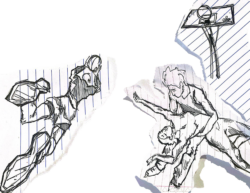America has its sporting priorities all mixed up. News of quarterback Carson Palmer’s trade to the Oakland Raiders dominated headlines and SportsCenter all day Tuesday. The debate raged around whether the Raiders gave up too much and how the Bengals, his former team, were reacting to his departure. All of this on the day before the start of the 107th World Series. Baseball has never been so belittled in American sporting culture.
To make matters worse, this week’s baseball news was shrouded in negativity. Stories of the Red Sox late-season implosion and Dwight Gooden’s drug binge during the Mets’ 1986 championship parade were the most compelling storylines in what should be a celebratory week for the sport.
Game 1 of the World Series used to be a day of profound meaning in this country. In the early part of the century, shops would close as workers gathered near scoreboards set up in city squares, so people could witness the action relayed by telegraph. Public schools screeched to a halt as entire classrooms huddled around radios, with teachers and students gripped by the drama. The series was the talk of the town and nothing, let alone another sport, could take the public’s attention away from the annual culmination of the national pastime.
But the World Series has become an afterthought for many modern sports fans, and the event seems to have devolved into a shadow of its former self. The classic series storylines that formerly captivated our discussions have lost precedence, while baseball greats don’t possess the same star power in our culture that they once did. We’ve stopped watching as other sports have become more popular and accessible, and subsequently, we’ve stopped caring.
This year, the volume of World Series coverage is lower than ever, with news of ongoing NBA lockout negotiations and minutiae of the NFL regular season dominating the consciousness of sports fans. Baseball has been fundamentally supplanted as the national pastime, with even its finest occasion taking a backseat to in-depth fantasy football analysis.
But why is there suddenly so little interest in the Fall Classic? The “experts” have branded this series as a demonstration of parity in baseball, with two small-market teams giving impartial viewers a breath of fresh air from the ludicrous offseason spending of the Phillies, Yankees, and Red Sox. The series has all the characteristics of a classic match-up, one that should surely honor rich tradition of Major League Baseball.
In the road dugout we have the hard-hitting Texas Rangers, seeking their first world championship after falling just short last season. With a roster of homegrown talent, they slugged their way past two red-hot teams and look like an imposing force heading into the series.
The St. Louis Cardinals enter the series as the underdog after an inconsistent regular season. Unlikely heroes like David Freese and Jason Motte have propelled the Cardinals’ postseason success, despite a dearth of proven major league talent on the squad. At the plate, of course, they have the game’s best in Albert Pujols, arguably the finest player of his generation. They also have a postseason ace in Chris Carpenter, who showed he was ready to quiet the mighty Texas bats in six strong innings in Game 1, leading the Cardinals to a 3-2 victory.
Still, even with some of the game’s best athletes on display and with everything to play for, people outside of the Dallas/Fort-Worth and St. Louis areas couldn’t care less about this title bout.
With no lack of storylines or stars, the disinterest in this series is proof of a larger movement away from baseball as a mainstream sport in this country. The Super Bowl has long outperformed the World Series in TV ratings, and more of America’s youth are turning to basketball and soccer before acquainting themselves with a baseball diamond.
What used to be cherished as a timeless and free-flowing game full of beautiful intricacies have been condemned as tedious, boring, and drawn-out affair intended for seniors wanting to wax poetic about the good ol’ days. Extra innings induce feelings of frustration, rather than excitement. Pitching duels are lamented for the batters’ futility, rather than the hurlers’ expertise. Bunts and small-ball are discouraged in favor of swinging for the fences.
Viewers are on a quest for instant satisfaction, something baseball is not intended to provide. I can offer no answers to baseball’s dwindling popularity, only sorrow at the loss of one of the common interests that united us as Americans. Baseball will live on, but its unique place in our culture is dead and has been for some time. I just never thought Carson Palmer would be the one to finally make me realize it.




